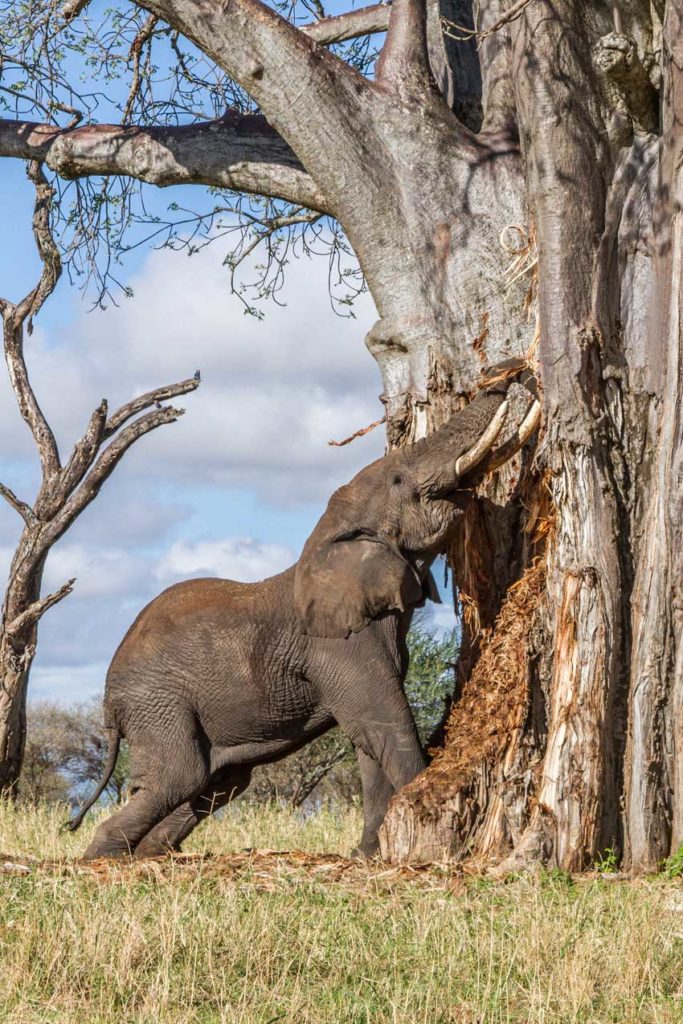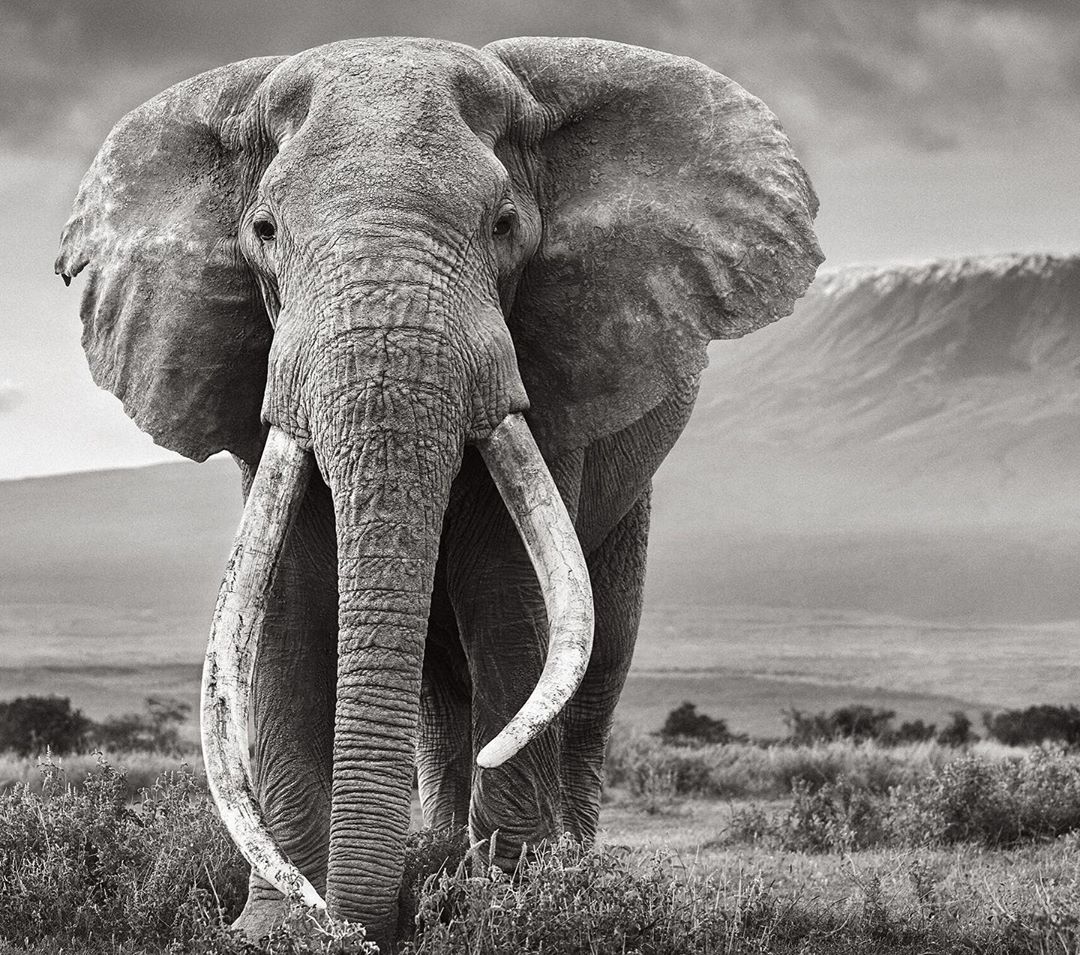African elephants are the biggest land mammals, there are two species of elephants, forest and savanna elephant. In local languages in Kenya and Tanzania especially Kiswahili, they are called tembo, ndovu or jumbo.
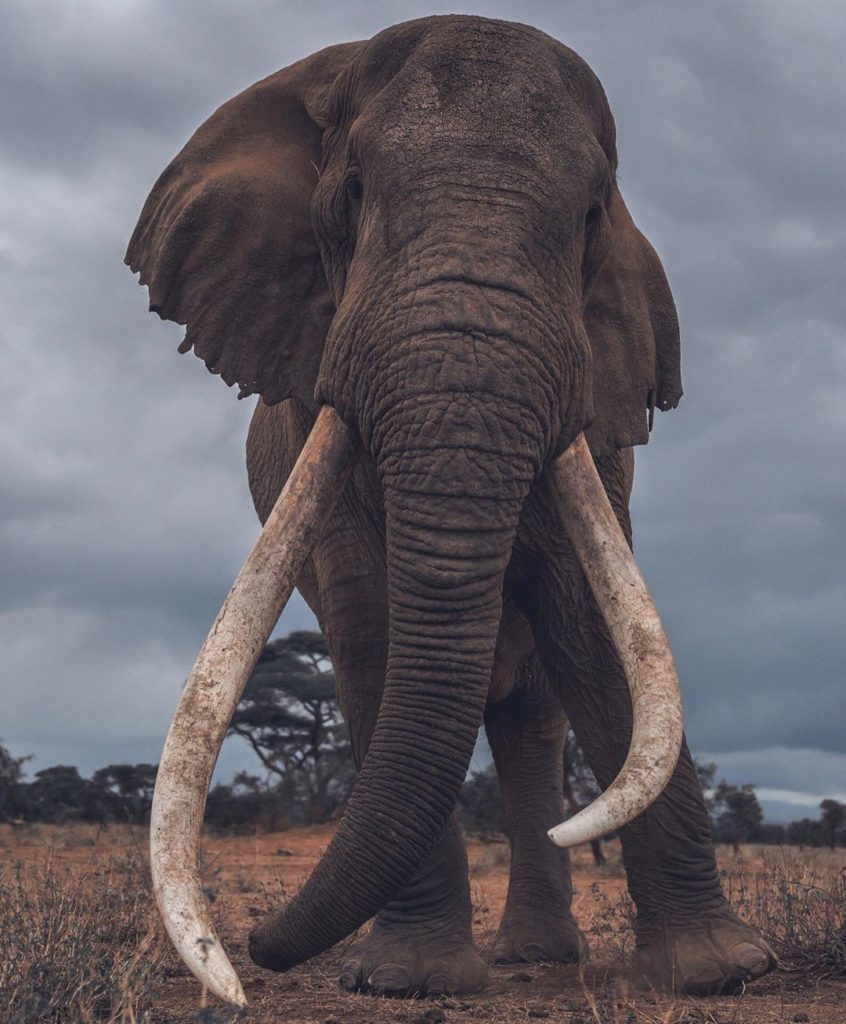
There are less than 30 giant tusker left in the world
The big tuskers elephants are on the verge of becoming extinct because of consequences brought in by climate change and poachers. The death of Satao in 2014 in the hands of poachers proves that poaching is indeed the biggest threat to survival of these giants. Although conservationists argue that Tim the elephant, another giant tusker of Amboseli died of natural causes, to some extent climate change has contributed to demise of these animals due to prolong droughts.
In Kenya you can adopt an elephant
The David Sheldrick wildlife Trust takes care of orphaned elephants due to poaching. A calf will be taken care of without a mother until adulthood then returned to wild.
You can tell the feelings of elephants by their ears flaps
Elephants flap their ears when angry, happy or aggravated. Elephant’s ears are so large that they keep elephants cool. Their ears together with vibrations sensed from their feet and trunk are capable of hearing other elephants from some kilometres away.
Elephant’s herd is headed by matriarch
Elephants usually organise themselves into different herds. The family herd is led by an older female which consists of mothers, calves and teenage female elephants. The male elephants form other bachelor groups and leave at will to search for mates.
Elephants can “smell” water
Elephants often points their trunks in the air and this help them smell water particles, then they dig holes on the ground to come up with new springs. They help other animals to get water. They drink about 18 to 50 gallons of water every day. Elephants rarely forget their path.
There is an iconic beer in Kenya known as “Tusker”
The Kenya Breweries Company now known as East African Breweries Limited (EABL), was the first brewing company in the country, George Hurst, the founder, who created the lager in 1929, loved hunting and during his expedition in the jungle, he was cornered and trampled to death by an elephant. His brother named the beer Tusker, and it’s one of the most consumed beers in the country.
Elephants have emotions
Like human beings, elephants mourn their fellow who die, they might get emotional and fail to feed and they die too. They take care one of them who falls sick or injured by bringing food. When one of them dies, they dig graves and cover the carcass with twigs and branches. If a baby elephant complains, the entire family will rumble and go over to touch and caress it. Elephants express grief, compassion, self-awareness, altruism and play.
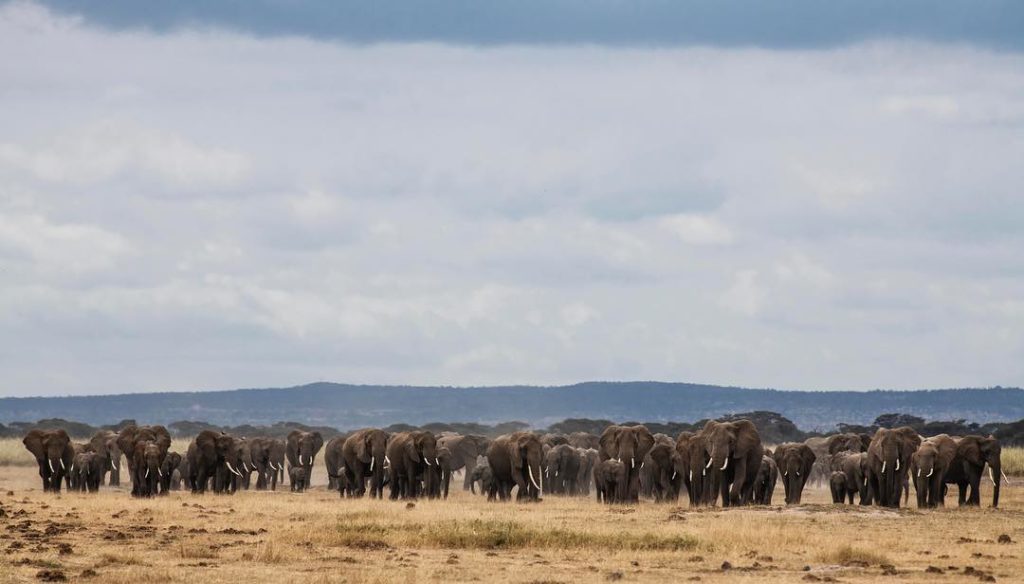
•The largest elephant on record was an adult male African elephant. He weighed about 24,000 pounds and was 13 feet tall at the shoulder.
•Elephants can live up to 70 years old.
•Elephants can’t jump, you cannot outrun them though!
•The average weight of an elephant’s heart is about 27 to 46 pounds.
•Of all land mammals brains, the elephant’s brain is the largest, compared to other wild animals, elephant’s brain is highly developed. Their brains are 3 to 4 times larger than that of humans but smaller in proportion to body weight.
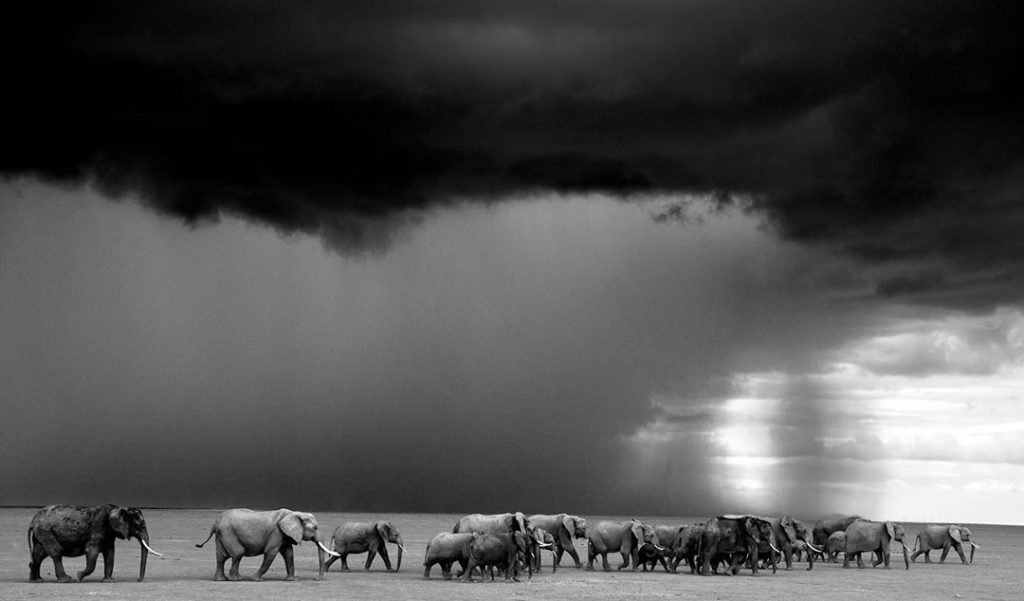
•An elephant’s skin is an inch thick, however, the skin is very sensitive to insects bites and sun heat, the reason why elephants loves mud bathing.
•Elephants have poor eyesight but an amazing sense of smell.
•Elephants have the longest pregnancy of the animals. The female can reproduce as early as 16 years of age but rarely have more than four calves throughout her lifetime.
•Elephants prefer one tusk over the other during task performance, just like people prefer left or right hand.
•In fact Tusks are an elephant’s incisor teeth. They are used for defense, digging for water especially from baobab trees, and lifting things.
•Elephant feet are covered in a soft padding that help uphold their weight, prevent them from slipping, and dull any sound. Therefore elephants can walk almost silently!
